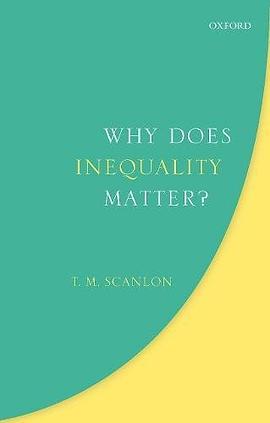
The Fundamentals of Ethics pdf epub mobi txt 电子书 下载 2025
- 伦理学
- 哲学
- 社会
- 政治
- 世界观与方法论
- 伦理学
- 道德哲学
- 基础理论
- 伦理原则
- 道德推理
- 应用伦理学
- 价值理论
- 道德困境
- 哲学
- 学术著作

具体描述
In The Fundamentals of Ethics, Fourth Edition, author Russ Shafer-Landau employs a uniquely engaging writing style to introduce students to the essential ideas of moral philosophy. Offering more comprehensive coverage of the good life, normative ethics, and metaethics than any other text of its kind, this book also addresses issues that are often omitted from other texts, such as the doctrine of doing and allowing, the doctrine of double effect, ethical particularism, the desire-satisfaction theory of well-being, moral error theory, and Ross's theory of prima facie duties. Shafer-Landau carefully reconstructs and analyzes dozens of arguments in depth, at a level that is understandable to students with no prior philosophical background.
作者简介
Russ Shafer-Landau is Professor of Philosophy at the University of Wisconsin-Madison. He is the author, editor, or coeditor of several books including Living Ethics (OUP, 2018) and The Ethical Life, Fourth Edition (OUP, 2017). He is also the editor of Oxford Studies in Metaethics.
目录信息
Preface
New to the Fourth Edition
Instructor's Manual and Companion Website
A Note on the Companion Volume
Acknowledgments
Introduction
The Lay of the Land
Skepticism about Ethics
Ethical Starting Points
What Is Morality?
Moral Reasoning
The Role of Moral Theory
Looking Ahead
Part One. The Good Life
1. Hedonism: Its Powerful Appeal
Happiness and Intrinsic Value
The Attractions of Hedonism
There Are Many Models of a Good Life
Personal Authority and Well-Being
Misery Clearly Hampers a Good Life; Happiness Clearly Improves It
The Limits of Explanation
Rules of the Good Life--and Their Exceptions
Happiness Is What We Want for Our Loved Ones
2. Is Happiness All That Matters?
The Paradox of Hedonism
Evil Pleasures
The Two Worlds
False Happiness
The Importance of Autonomy
Life's Trajectory
Unhappiness as a Symptom of Harm
Conclusion
3. Getting What You Want
A Variety of Good Lives
Personal Authority
Avoiding Objective Values
Motivation
Justifying the Pursuit of Self-Interest
Knowledge of the Good
4. Problems for the Desire Theory
Getting What You Want May Not Be Necessary for Promoting Your Good
Getting What You Want May Not Be Sufficient for Promoting Your Good
Desires Based on False Beliefs
Disinterested and Other-Regarding Desires
Disappointment
Ignorance of Desire Satisfaction
Impoverished Desires
The Paradox of Self-Harm and Self-Sacrifice
The Fallibility of Our Deepest Desires
Conclusion
Part Two. Normative Ethics: Doing the Right Thing
5. Morality and Religion
Three Assumptions about Morality and Religion
First Assumption: Religious Belief Is Needed for Moral Motivation
Second Assumption: God Is the Creator of Morality
Third Assumption: Religion Is an Essential Source of Moral Guidance
Conclusion
6. Natural Law
The Theory and Its Attractions
Three Conceptions of Human Nature
Human Nature as Animal Nature
Human Nature Is What Is Innate
Human Nature Is What All Humans Have in Common
Natural Purposes
The Argument from Humanity
Conclusion
7. Psychological Egoism
Egoism and Altruism
Does It Matter Whether Psychological Egoism Is True?
The Argument from Our Strongest Desires
The Argument from Expected Benefit
Two Egoistic Strategies
Appealing to the Guilty Conscience
Expanding the Realm of Self-Interest
Letting the Evidence Decide
Conclusion
8. Ethical Egoism
Why Be Moral?
Two Popular Arguments for Ethical Egoism
The Self-Reliance Argument
The Libertarian Argument
The Best Argument for Ethical Egoism
Three Problems for Ethical Egoism
Egoism Violates Core Moral Beliefs
Egoism Cannot Allow for the Existence of Moral Rights
Egoism Arbitrarily Makes My Interests All-Important
Conclusion
9. Consequentialism: Its Nature and Attractions
The Nature of Consequentialism
Structure
Maximizing Goodness
Moral Knowledge
Actual Versus Expected Results
Assessing Actions and Intentions
The Attractions of Utilitarianism
Impartiality
The Ability to Justify Conventional Moral Wisdom
Conflict Resolution
Moral Flexibility
The Scope of the Moral Community
Slippery Slope Arguments
10. Consequentialism: Its Difficulties
Measuring Well-Being
Utilitarianism Is Very Demanding
Deliberation
Motivation
Action
Impartiality
No Intrinsic Wrongness (or Rightness)
The Problem of Injustice
Potential Solutions to the Problem of Injustice
Justice Is Also Intrinsically Valuable
Injustice Is Never Optimific
Justice Must Sometimes Be Sacrificed
Rule Consequentialism
Conclusion
11. The Kantian Perspective: Fairness and Justice
Consistency and Fairness
The Principle of Universalizability
Morality and Rationality
Assessing the Principle of Universalizability
Integrity
Kant on Absolute Moral Duties
12. The Kantian Perspective: Autonomy and Respect
The Principle of Humanity
The Importance of Rationality and Autonomy
The Good Will and Moral Worth
Five Problems with the Principle of Humanity
Vagueness
Determining Just Deserts
Are We Autonomous?
Moral Luck
The Scope of the Moral Community
Conclusion
13. The Social Contract Tradition: The Theory and Its Attractions
The Lure of Proceduralism
The Background of the Social Contract Theory
The Prisoner's Dilemma
Cooperation and the State of Nature
The Advantages of Contractarianism
Morality Is Essentially a Social Phenomenon
Contractarianism Explains and Justifies the Content of the Basic Moral Rules
Contractarianism Offers a Method for Justifying Every Moral Rule
Contractarianism Explains the Objectivity of Morality
Contractarianism Explains Why It Is Sometimes Acceptable to Break the Moral Rules
More Advantages: Morality and the Law
Contractarianism Justifies a Basic Moral Duty to Obey the Law
The Contractarian Justification of Legal Punishment
Contractarianism Justifies the State's Role in Criminal Law
Contractarianism and Civil Disobedience
14. The Social Contract Tradition: Problems and Prospects
Why Be Moral?
The Role of Consent
Disagreement among the Contractors
The Scope of the Moral Community
Conclusion
15. Ethical Pluralism and Absolute Moral Rules
The Structure of Moral Theories
Is Torture Always Immoral?
Preventing Catastrophes
The Doctrine of Double Effect
A Reply to the Argument from Disaster Prevention
How the DDE Threatens Act Consequentialism
Distinguishing Intention from Foresight
Moral Conflict and Contradiction
Is Moral Absolutism Irrational?
The Doctrine of Doing and Allowing
Conclusion
16. Ethical Pluralism: Prima Facie Duties and Ethical Particularism
Ross's Ethic of Prima Facie Duties
The Advantages of Ross's View
Pluralism
We Are Sometimes Permitted to Break the Moral Rules
Moral Conflict
Moral Regret
Addressing the Anti-absolutist Arguments
A Problem for Ross's View
Knowing the Fundamental Moral Rules
Self-Evidence and the Testing of Moral Theories
Knowing the Right Thing to Do
Ethical Particularism
Three Problems for Ethical Particularism
Its Lack of Unity
Accounting for Moral Knowledge
Some Things Possess Permanent Moral Importance
Conclusion
17. Virtue Ethics
The Standard of Right Action
Moral Complexity
Moral Understanding
Moral Education
The Nature of Virtue
Virtue and the Good Life
Objections
Tragic Dilemmas
Does Virtue Ethics Offer Adequate Moral Guidance?
Is Virtue Ethics Too Demanding?
Who Are the Moral Role Models?
Conflict and Contradiction
The Priority Problem
Conclusion
18. Feminist Ethics
The Elements of Feminist Ethics
Moral Development
Women's Experience
The Ethics of Care
The Importance of Emotions
Against Unification
Against Impartiality and Abstraction
Against Competition
Downplaying Rights
Challenges for Feminist Ethics
Conclusion
Part Three. Metaethics: The Status of Morality
19. Ethical Relativism
Moral Skepticism
Two Kinds of Ethical Relativism
Some Implications of Ethical Subjectivism and Cultural Relativism
Moral Infallibility
Moral Equivalence
Questioning Our Own Commitments
Moral Progress
Ethical Subjectivism and the Problem of Contradiction
Cultural Relativism and the Problem of Contradiction
Ideal Observers
Conclusion
20. Moral Nihilism
Error Theory
Expressivism
How Is It Possible to Argue Logically about Morality?
Expressivism and Amoralists
The Nature of Moral Judgment
Conclusion
21. Eleven Arguments against Moral Objectivity
1. Objectivity Requires Absolutism
2. All Truth Is Subjective
3. Equal Rights Imply Equal Plausibility
4. Moral Objectivity Supports Dogmatism
5. Moral Objectivity Supports Intolerance
6. Moral Objectivity Cannot Allow for Legitimate Cultural Variation
7. Moral Disagreement Undermines Moral Objectivity
8. Atheism Undermines Moral Objectivity
9. The Absence of Categorical Reasons Undermines Moral Objectivity
10. Moral Motivation Undermines Moral Objectivity
11. Values Have No Place in a Scientific World
Conclusion
References
Suggestions for Further Reading
Glossary
Index
· · · · · · (收起)
读后感
评分
评分
评分
评分
用户评价
看的是第二版,粗粗一比较,这第四版在最后一章对于道德客观性的反对就已经多了一个论证了
评分作为导论还行,但有一些领域不够深入。
评分断断续续看了大半年终于读完了。非常优秀的伦理学课本,知识全面语言平实,能领会到很多基本的哲学思考的方式
评分非常丰富的导论,可惜深度为广度做了牺牲
评分很棒的导论啊,内容很广,看完之后对伦理学有了大致了解了。
相关图书
本站所有内容均为互联网搜索引擎提供的公开搜索信息,本站不存储任何数据与内容,任何内容与数据均与本站无关,如有需要请联系相关搜索引擎包括但不限于百度,google,bing,sogou 等
© 2025 book.quotespace.org All Rights Reserved. 小美书屋 版权所有




















